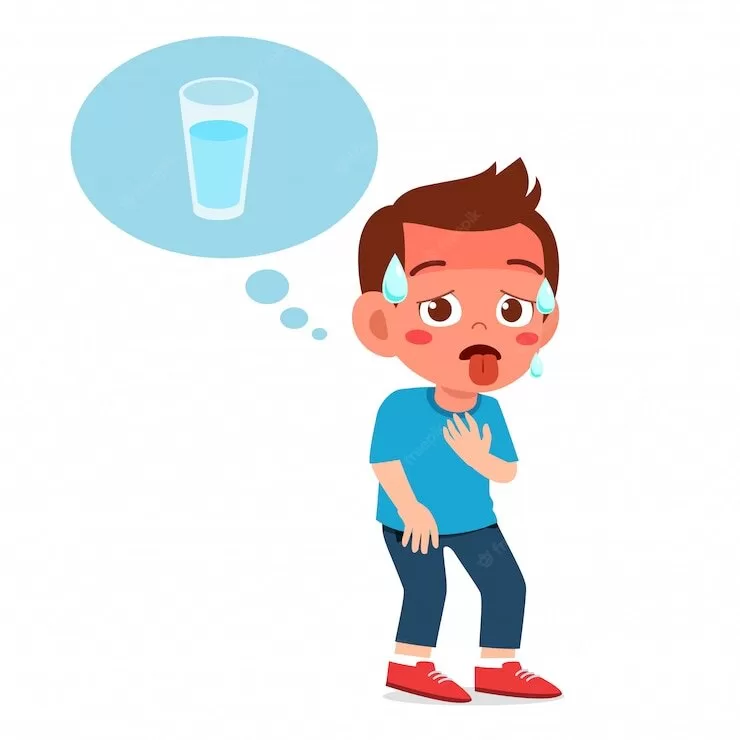Overview
One should consult a professional medical expert for advice if we talk medically. The right amount of water intake for a kidney patient can vary from person to person. Several factors, like; the stage of kidney disease, overall health, and individual’s bodily needs influence the amount of water intake.
In some cases, excess water intake for kidney patients can be harmful as it can put a strain on the working of the kidneys, thus worsening the condition. Also, less amount of water intake for kidney patients can be harmful as it can lead to dehydration. It is essential to balance the amount of water intake for kidney patients. For an average person consuming eight glasses of water daily is essential, but this cannot be applied to kidney patients.
The Ayurvedic doctors will assess the patient’s situation to determine the amount of water they should drink. If you or anyone you know is suffering from kidney disease, it is advisable to reach out for professional help, the internet will only take you so far. The professionals will be able to tell you the exact amount of water intake for kidney patients.
Effects of Dehydration on Kidney Function

Dehydration can have significant effects on kidney function. The kidneys are crucial in maintaining the body’s fluid and electrolyte balance. When there is inadequate water intake and the body becomes dehydrated, the kidney’s ability to function correctly can be compromised. Here are some of the effects of drinking less water in kidney functions:
- Reduced blood flow to the kidneys
- Concentrated urine
- Electrolyte imbalances
- Kidney stones
- Chronic Kidney disease
Water intake in CKD plays a vital role. Even patients with pre-existing kidney disease can develop severe percussion if water is not consumed correctly.
Benefits of Sufficient Water Intake for Kidney Health
Sufficient water intake is crucial for maintaining kidney health and overall well-being. Here are some of the benefits of drinking enough water in kidney health:
- Proper water intake can help remove toxins from the body, such as Urea and creatinine, from the body.
- Enough water in kidney health helps dilute the urine and reduces the risk of kidney stone formation by preventing minerals and salts from clustering.
- It also saves us from UTIs. It flushes out the bacteria that cause UTI, thus preventing it from affecting the kidneys.
- It is a great way to regulate blood pressure. To keep the kidneys healthy, it is essential to keep the blood pressure in check.
Factors Affecting Water Requirements for Kidney Patients
Various factors can influence levels of water in the kidney. These factors determine the individualized approach that healthcare professionals take when determining the appropriate water intake for each patient. Given below are some of the factors that affect the requirements for kidney patients:
- Stage of kidney disease
- Types of kidney diseases
- Levels of kidney function
- Urine output
- Blood pressure control
How Much Water Should a Kidney Patient Intake

The recommended daily water intake for kidney patients can vary depending on several factors, including the stage of kidney disease, individual health status, urine output, and any other specific medical conditions. As such, it is essential for kidney patients to follow the guidance provided by their healthcare professionals.
According to the National Academies of Sciences, Engineering, and Medicine, the adequate daily water intake for most adults, including those with kidney disease, is about:
- For men
Approx. 3.7 liters (about 13 cups)/ day
- For women
Approx. 2.7 liters (about 9 cups)/day
It is also important to note that the total water intake includes water from all sources, including beverages like tea, coffee, and milk, and even the water content in fruits and vegetables.
Foods with High Water Content Suitable for Kidney Patients
For kidney patients consuming foods with high water, content can be beneficial, as they contribute to hydration while also providing essential nutrients. Including these foods in the diet can be a way to increase overall fluid intake without solely relying on drinking liquid. Here are some foods with a high water content that are generally suitable for kidney patients:
- Cucumbers
- Watermelon
- Celery
- Lettuce and leafy greens
- Zucchini
- Radish
- Strawberry
While these foods have higher water content and are generally suitable for kidney patients, portion control and overall dietary balance should be considered in consultation with a dietician or healthcare professional who can provide personalized guidance based on the individual’s specific needs and stage of kidney disease.
The Risks of Excessive Fluid Intake For Kidney Patients
Excessive fluid intake can pose several risks and complications for kidney patients, especially those with reduced kidney function or certain medical conditions. Here are some of the potential risks associated with consuming too much fluid:
- Fluid overload
- It can worsen the kidney functions
- Electrolyte imbalances
- Hypertension
- Edema and pulmonary edema
It is important to note that the risks of excessive fluid intake are more significant for individuals with advanced kidney disease or those undergoing dialysis. For individuals with early-stage kidney disease or relatively well-preserved kidney function, moderate fluid intake may still be appropriate, but it should be discussed with their healthcare provider.
Recognizing Symptoms of Overhydration
Overhydration, also known as water intoxication or hyponatremia, occurs when there is an excessive amount of water in the body, leading to a dangerous drop in the concentration of Sodium in the blood. This could be life-threatening if not treated on time by a professional doctor. Given below are some of the symptoms of overhydration:
- Nausea and vomiting
Drinking too much water can cause an upset stomach, leading to feelings of nausea and sometimes vomiting.
- Headache
Excessive water intake can dilute the electrolytes in the bloodstream, including sodium, which can lead to headaches.
- Confusion and disorientation
A drop in sodium levels can affect brain function, leading to confusion, difficulty concentrating, and disorientation.
- Fatigue and weakness
Hyponatremia can cause a lack of energy and weakness in the muscles
- Swelling
Overhydration can lead to fluid retention, resulting in swelling in the hands, feet, ankles, or legs.
- Seizures
In severe cases, hyponatremia can lead to seizures due to the imbalance of electrolytes in the brain.
- Coma
In extreme situations, untreated overhydration can cause a person to slip into a coma
If you suspect someone is experiencing symptoms of drinking too much water, it is crucial to seek medical attention immediately. Prompt treatment can help restore the balance of electrolytes and prevent further complications.
Hydration Tips for Kidney Patients Engaging in Physical Activity
Staying adequately hydrated is essential for kidney patients engaging in physical activity. However, individuals with kidney conditions may need to be cautious about their fluid intake, as excessive hydration can strain the kidneys. Here are some hydration tips tailored explicitly for kidney participation in physical activity:
- Consult your healthcare provider
- Stay aware of your fluid restrictions
- Monitor your weight
- Opt for the appropriate beverages
- Sip fluid throughout the day
- Be mindful of signs of dehydration
- Avoid excessive sweating
Keep in mind that each kidney patient’s condition is unique, so it is crucial to work with your healthcare provider and possibly a registered dietitian to develop a personalized hydration plan that fits your specific needs and limitations.
Precautions for Hot Weather Conditions

Hot weather can be challenging and potentially dangerous, mainly if you do not take the necessary precautions. Here are some essential precautions to follow during hot weather:
- Stay hydrated
- Dress accordingly
- Seek shade or use air-conditioning
- Use sunscreen
- Wear a hat and sunglasses
- Limit physical activity
- Cool off with water
- Check on vulnerable individuals
- Know about the signs of heat related issues
- Never have children or pets in parked and turned-off cars
By following these precautions, you will be able to protect yourself and others from heat-related illnesses and enjoy hot weather conditions more safely. If you suspect heat-related health issues, seek medical attention promptly.
Frequently Asked Questions (FAQs)
- How much water should a kidney patient drink daily?
If you are looking for the exact amount, I would suggest you consult a doctor. The amount of water intake can vary from person to person.
- Are there any specific beverages that are better for kidney health?
While consuming the beverages, one must remember that these are included in the total amount of water recommended. Kidney patients can easily consume cucumber juice, watermelon juice or mojito, strawberry juice, orange juice, or any beverage made from pineapple.
- Can drinking too much water harm the kidneys?
Yes, it can put excess pressure on your kidneys, thus disrupting their proper functioning. This happens because as your kidneys are damaged, only some parts are working, and it is impossible for that part to handle such pressure.
- How can kidney patients stay hydrated without overloading their kidneys?
Hydration is still essential. Try balancing your water intake. Ensure you keep in mind that water content from water, beverages, and even fruits and vegetables includes total water intake.
- Is it necessary to restrict fluid intake if urine output is expected?
In most cases, it is not necessary to restrict fluid intake if urine output is standard. Average urine output typically indicates that your body is effectively eliminating waste products and toxins, and your kidneys are functioning well.
- What are the signs of dehydration in kidney patients?
There are many signs of dehydration. Some of them are reduced urine output, dry mouth and throat, thirst, dizziness, rapid heartbeat and breathing, sunken eyes and dry skin, confusion and irritability, etc.
- Are there alternative ways to stay hydrated besides drinking water?
Yes, of course, there are. You can consume fruits, vegetables, herbal teas, coconut water, clear soups, ice pops, and flavored water.
- Should kidney patients adjust their fluid intake based on dialysis schedules?
Before, during, or after dialysis, consuming water can be uncomfortable. It reduces the chances of unpleasant symptoms during dialysis and potential health problems over time.
- Can herbal teas and natural drinks be a part of a kidney-friendly hydration plan?
Yes, kidney patients can consume herbal drinks. They just need to be extra careful of the ingredients.
- Are there any additional supplements or medications that can support kidney health and hydration?
Again, for your exact situation, you must consult with your doctor. There indeed are some medications that can help you with the hydration of your body.
Conclusion
Maintaining proper hydration and kidney health is essential for overall well-being. Adequate fluid intake is crucial to support bodily functions and prevent dehydration.
You need to be cautious of certain supplements and medications. Electrolyte supplements, phosphate binders, vitamin D supplements, diuretics, and other medications. Taking proactive steps to maintain kidney health, including following a balanced diet, managing fluid intake, and staying physically active, can contribute to a healthier lifestyle and improved well-being.
Consult now and get relieved naturally!
